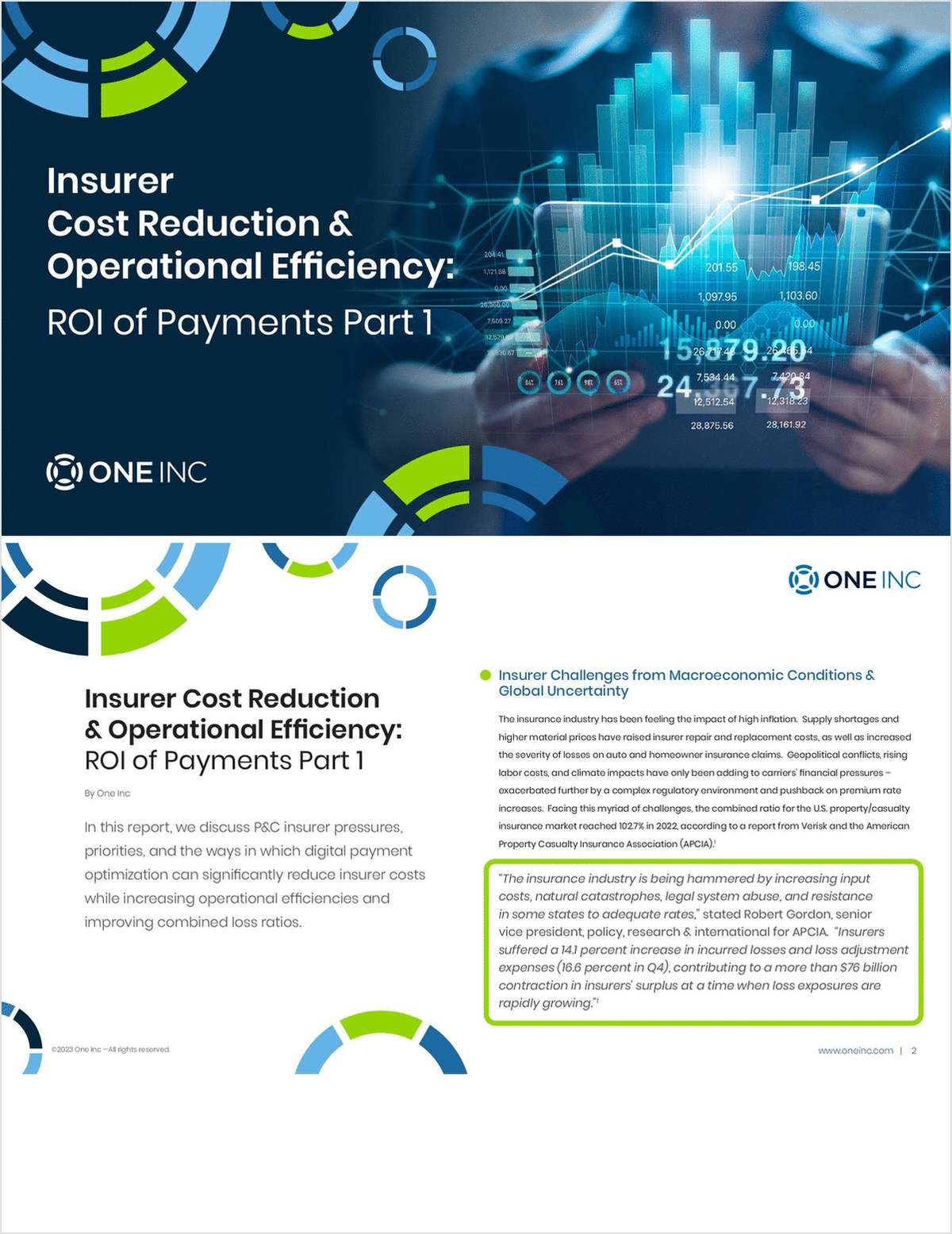NU Online News Service
The personal lines insurance industry is in good financial shape despite the economic challenges companies have faced recently, but some consolidation is expected in the future among the smaller players, according to a report from Moody's.
The report, "U.S. P&C Personal Lines Insurance--Industry Scorecard," released by Moody's Investors Service, said the personal lines sector for auto and homeowners insurance remains "financially sound," despite the weak economy and "prolonged" soft market cycle.
Despite marginal to negative premium growth for these insurers during 2008 and 2009, primarily due to the economic crisis, "the industry maintained profitability" with a combined ratio of 96.7 in 2009. The results were helped by a benign hurricane season, the report noted.
"Competition remains high but rational, and earnings prospects are good," with signs of increase in pricing in the mid- to low-single digits during the early part of this year, the report said.
The industry was also helped by a combination of "strong cash flow generation," a moderate amount of debt, good capitalization and conservative investing.
On the negative side, personal lines insurance is a commodity-type product. As a mature industry, under intense competition, the only room for growth is through price.
The industry is concentrated among a handful of "large, established and well-entrenched players," the report noted. Five of the top companies represent 50 percent of the market collectively, while the top-10 companies make up two-thirds of the market based on 2009 direct written premiums.
"We would expect to see consolidation among the smaller personal lines players as investments in technology, advertising and brand make it more difficult to compete, though we do not expect major shifts in market share," Moody's said. The merger and acquisition activity is primarily expected to take place among smaller, regional players, Moody's suggested, but such activity is not expected to cause "material shifts in market share over the medium term."
Ratings are expected to remain unchanged for this segment over the next 12-18 months, the rating service said, as "modest organic premium growth, rising prices and a manageable combined ratio contribute to a stable financial profile."
The report noted that direct writers have an economic advantage because their lower overhead costs can be passed onto consumers, undercutting agency business. However, independent agents have an advantage emphasizing service and customer loyalty.
The report said that carriers have developed multiple channel platforms--direct, agent and Internet--"to take advantage of changing consumer buying habits."
Want to continue reading?
Become a Free PropertyCasualty360 Digital Reader
Your access to unlimited PropertyCasualty360 content isn’t changing.
Once you are an ALM digital member, you’ll receive:
- Breaking insurance news and analysis, on-site and via our newsletters and custom alerts
- Weekly Insurance Speak podcast featuring exclusive interviews with industry leaders
- Educational webcasts, white papers, and ebooks from industry thought leaders
- Critical converage of the employee benefits and financial advisory markets on our other ALM sites, BenefitsPRO and ThinkAdvisor
Already have an account? Sign In Now
© 2024 ALM Global, LLC, All Rights Reserved. Request academic re-use from www.copyright.com. All other uses, submit a request to [email protected]. For more information visit Asset & Logo Licensing.








